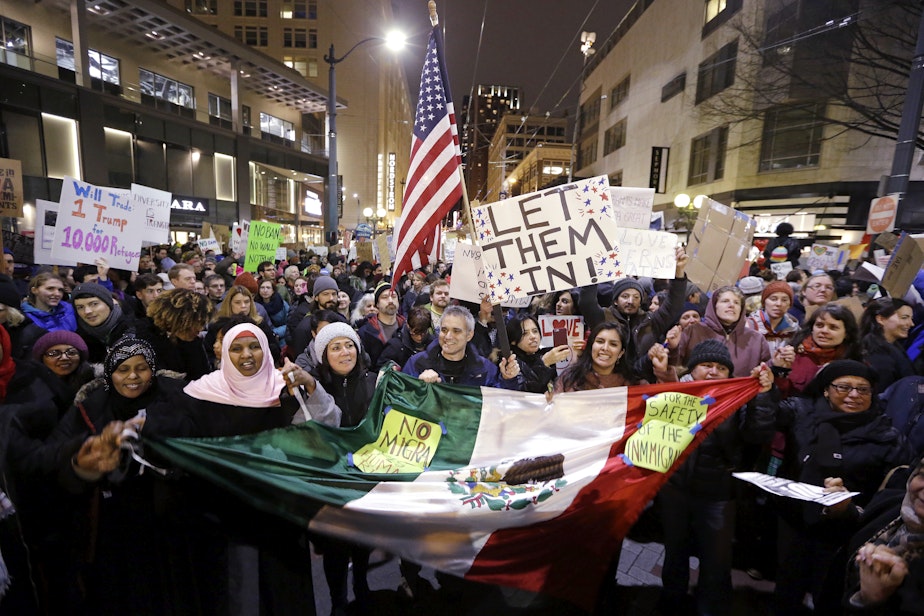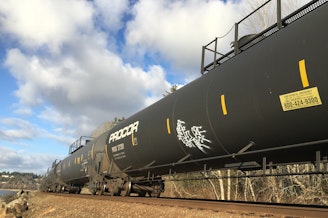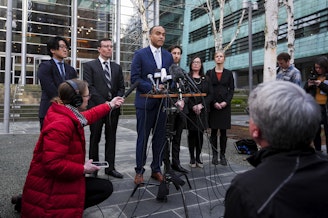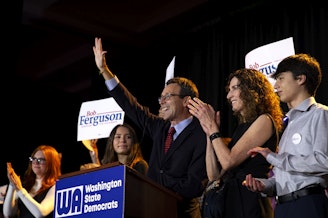Western Washington groups scramble to admit refugees before Trump’s inauguration

Ever since the November election, case workers at World Relief Western Washington have been working evenings and weekends, driving to SeaTac to pick up arriving families and helping them get settled.
That’s because, for the past two and a half months, the Biden administration has been bringing all the refugees who are vetted and ready to travel into the U.S. as fast as possible, in case the incoming Trump administration shuts the door to more refugees.
“Our team is stretched. Our community is stretched,” said Medard Ngueita, the executive director of World Relief Western Washington. “We rely on host home volunteers to be able to place families while we're looking for permanent housing for them, and we ran out of those.”
Last year, Washington welcomed more than 12,000 new refugees. Ngueita said, since November, weekly arrivals have been up 40%.
At Lutheran Community Services Northwest, another organization that resettles refugees, some of their case workers had to work through the holidays, including doing airport pickups on Christmas Eve, Boxing Day, and New Year's.
"It's highly unusual for them to schedule arrivals from the time between Christmas and New Year's," said Daryl Morrissey, the director of refugee resettlement at Lutheran Community Services Northwest. "But this year that was the case, [so] we had to have people on standby."
Morrissey stressed that refugees are legal immigrants who have been invited to come to the U.S.
“Refugees have always been screened for safety,” he said, “but after 9/11, so many additional checks were put into place. There is no one who receives more screening to come to the United States than a refugee.”
When president-elect Donald Trump was in office the first time, he sharply limited how many refugees could come to the U.S. Arrivals slowed to a trickle, and Ngueita, at World Relief, had to lay off or furlough some staff members.
He’s worried that could happen again, and refugees could get stuck waiting in camps.
“If we shut the doors on refugees, more people will be made more vulnerable,” Ngueita said. “We're keeping people who are running for their lives in a perpetual fear.”
Ngueita said many of the refugees already living in Western Washington have family members who are trying to join them, and he’s worried that a policy shift could prolong the families’ separation.



